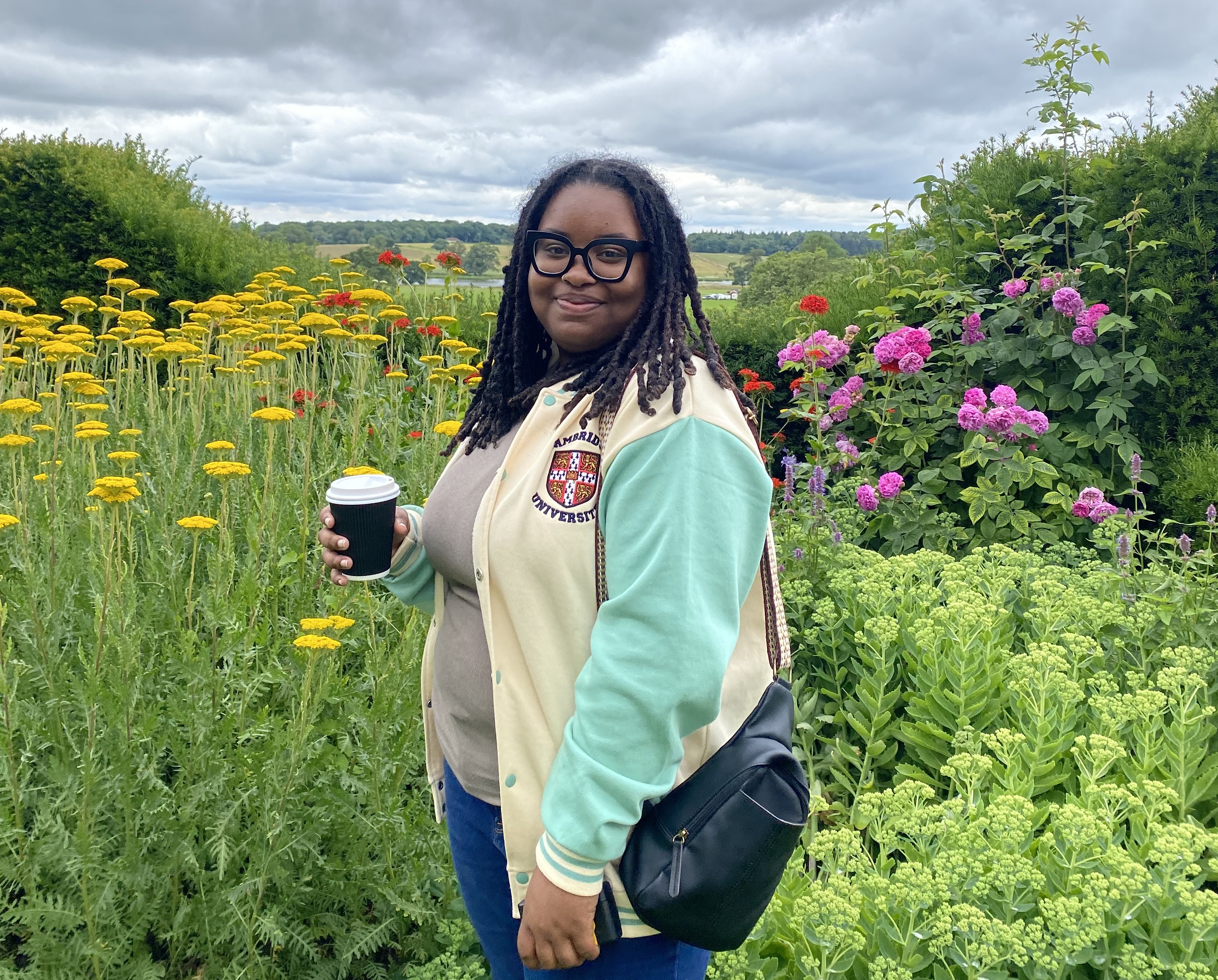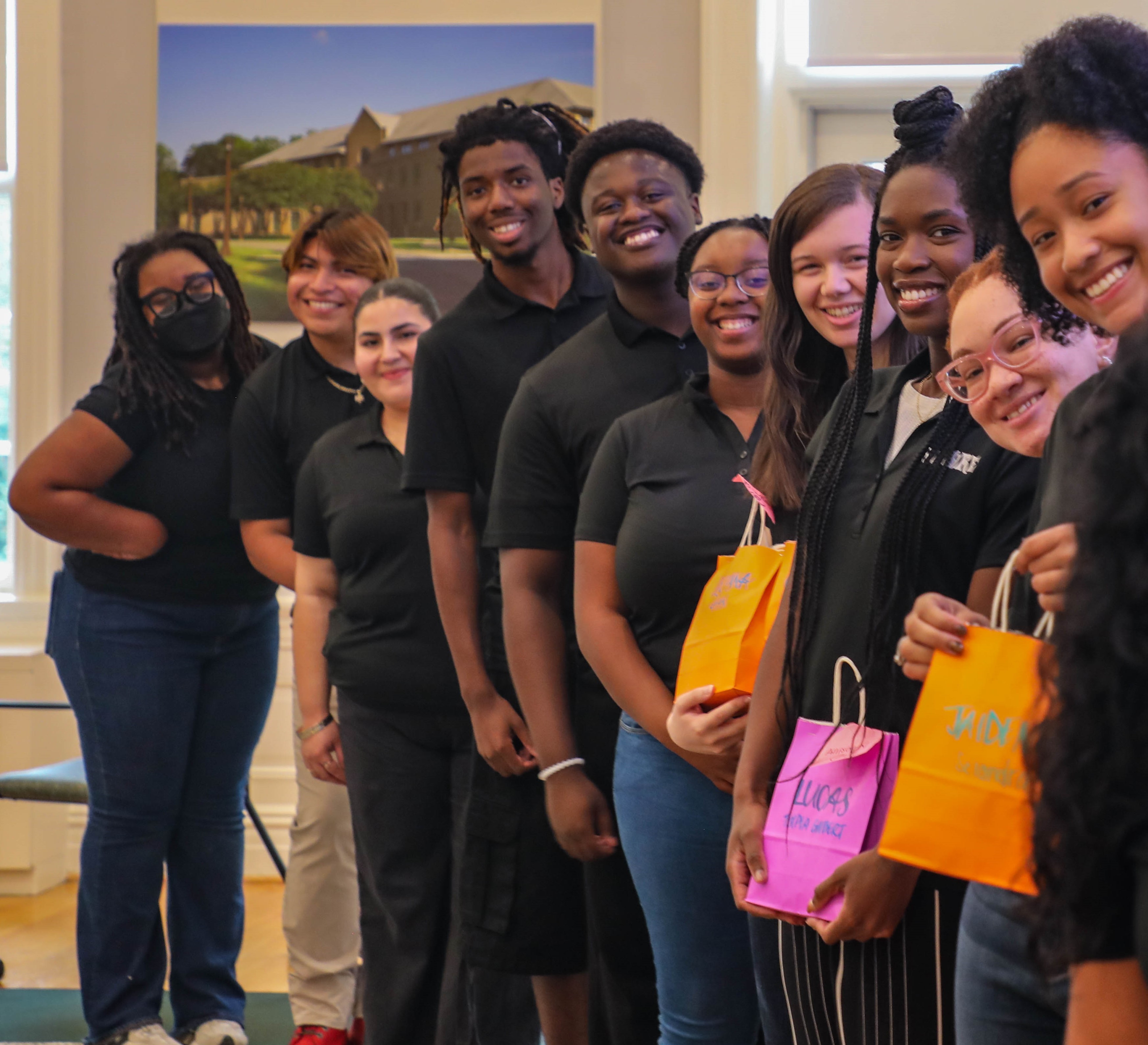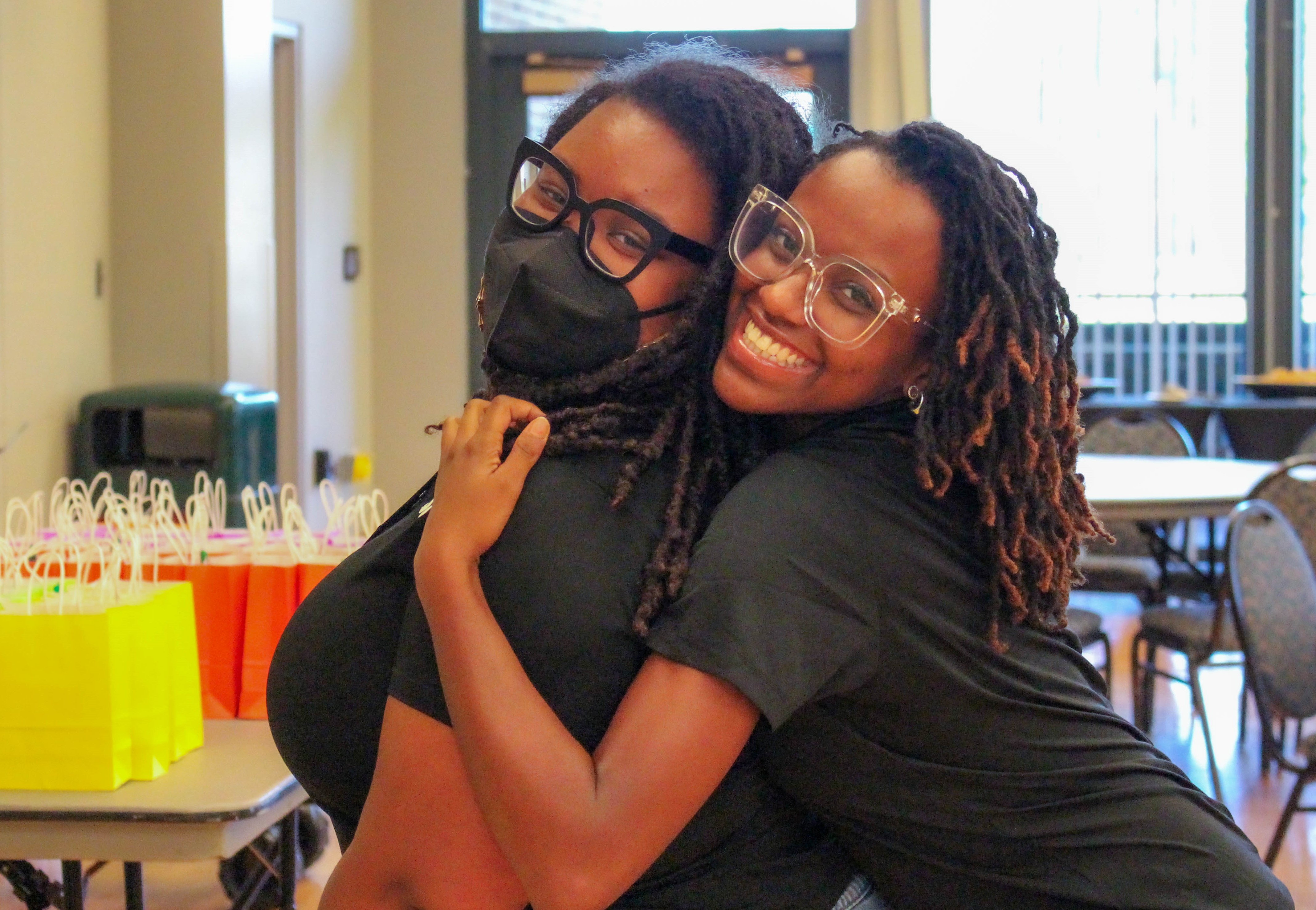Shawna Alston '25 pursues an “otherwise world”
 In writing her English honors thesis, Shawna Alston ‘25 calls upon many muses, including renowned scholars and artists — from James Baldwin and Lucille Clifton to Toni Morrison and José Esteban Muñoz — as well as faculty and students in the William & Mary Scholars Undergraduate Research Experience (WMSURE) community who provide invaluable support and inspiration each day.
In writing her English honors thesis, Shawna Alston ‘25 calls upon many muses, including renowned scholars and artists — from James Baldwin and Lucille Clifton to Toni Morrison and José Esteban Muñoz — as well as faculty and students in the William & Mary Scholars Undergraduate Research Experience (WMSURE) community who provide invaluable support and inspiration each day.
Alston, an English and Africana Studies double major, received a Charles Center Honors Fellowship last summer to conduct research in the UK on literature that interrogates themes of community, home, and what she calls “an otherwise world.”
“All of my research interests and all of my creative interests are rotating around this central idea of how we can build a society that is safe and comfortable for everyone.” Alston said. “What would that look like?”
Much of Alston’s research and writing centers on themes in Toni Morrison’s work, particularly the 1998 novel Paradise. In her honors thesis, Alston employs ideas from the novel to investigate literature through the lens of community building in and beyond the United States.
“I’m making the claim that paradise, or the world that Toni Morrison has created in Paradise, is an example or should be an example of what we ourselves can do to build utopias presently,” said Alston. “Because I think first and foremost what I am chasing is an otherwise world, like an alternative reality to the one that we are currently experiencing. And so I personally think home — more than home — should be paradise. I think you should be able to live freely and comfortably and safely.”
 “Morrison writes a lot about not only home but community, care, and compassion, and I think that’s important for the kind of things that I’m interested in,” Alston explained. “So, I talk a lot about home, and if we can extrapolate what makes a home a home into larger contexts where everyone feels at home everywhere.”
“Morrison writes a lot about not only home but community, care, and compassion, and I think that’s important for the kind of things that I’m interested in,” Alston explained. “So, I talk a lot about home, and if we can extrapolate what makes a home a home into larger contexts where everyone feels at home everywhere.”
Alston remarked that many of these foundational principles of community, care, and compassion have become difficult to recognize in our world. For example, she said, “Our political structure is teetering along edges that are dangerous — it’s not even teetering; it’s completely jumped off the dangerous end.”
Alston quotes one of her favorite musical artists, Marvin Gaye, who asked simply but powerfully, “What’s Going On?” “It’s a good question,” Alston said. “What’s going on? I’m constantly thinking about the ways artists can make the world so visible and can render the world so easy to understand. And how song and music — all of that art can aid us in our quest, or journey, or discovery of an otherwise world.”
For Alston, WMSURE is a model not only in terms of a community dedicated to academic success but one centered on life’s most important values. “WMSURE is definitely integral to my experience of home on campus,” she said. “I absolutely love my community in WMSURE and I can’t imagine what my experience at William & Mary would be like without it. It has become more than an inspiration in my writing — it has become a model for the kind of community that should exist everywhere.”
 Throughout her research journey, Alston has explored several theoretical frameworks, such as Afropessimism and Afrofuturism, citing such scholars as Frank B. Wilderson III, Saidiya Hartman, Hortense Spillers, and Joy James. She has also tapped ideas of such musical artists as Janelle Monáe and Sun Ra, whom she says call to the idea of transforming the world for the better.
Throughout her research journey, Alston has explored several theoretical frameworks, such as Afropessimism and Afrofuturism, citing such scholars as Frank B. Wilderson III, Saidiya Hartman, Hortense Spillers, and Joy James. She has also tapped ideas of such musical artists as Janelle Monáe and Sun Ra, whom she says call to the idea of transforming the world for the better.
José Esteban Muñoz’s Cruising Utopia: The Then and There of Queer Futurity provides another of the transformative frameworks for Alston’s research. His claim is that “queerness is not yet here, that the current society we live in is not conducive for expansive and enjoyable queer life,” she explained. “But he says that the world that is conducive for that is possible and can exist. We just have to work with one another to understand what about our world impedes upon the existence of queerness and queer life and how can we get rid of, subvert, or overrule that.”
It is poetry, however, that Alston finds most effective in articulating the call for transformation. “Poetry is transformative,” she said. “Poetry can give us the space to talk about the things that scholarship doesn’t.”
Alston recited lines from her favorite poem of Lucille Clifton’s, “Won’t you celebrate with me.”: “Here… between star shine and clay … everyday something has tried to kill me and has failed.”
Alston said, “I don’t think of anything else as that transformative as I think of poetry. There’s language there that you can make anything possible. And that’s what I’m trying to do; I’m trying to make anything possible.”
When asked about her double major in English and Africana Studies, Alston spoke to the importance of being in constant study of literature and writing in the English discipline and of looking beyond the White literary canon.
Namely, Alston looks to African American and African diasporic works for inspiration and spoke to the interdisciplinary nature of the Africana Studies degree. “It is an interesting way to take sociology, history, and linguistics classes without having to be a sociologist, historian, or linguist. Africana Studies offers classes that are cross-listed in those disciplines where your focus is not really the discipline; it's Black people.”
Alston added that the marriage between her two majors allows for a personally crafted college experience. “I didn’t want to only commit to the White literary canon. I didn’t want to say that these works deserve prevalence over the works that I actually enjoy and want to read. So, Africana Studies is my way of incorporating what is most important into my degree, what I think I should be learning from my college experience.”
As far as who she hopes to be in the future, she remarks not only about her professional career and the desire to be a published author, but also the future of the world.
“I want to be considered a published author at some point in my life — I’d like to publish a book. I’d like it to be marginally successful. But more than that, I want to do for someone else what all of my favorite writers have done for me. I say this in almost everything, it’s almost over-used at this point but I really do want to crack open the world for someone else and render it possible to just believe me when I say that you can do anything.”
She continued, “This world can be anything. And it is the powers that be that are convincing you that you have no power, but you have all of it, you have all of it. And everything is possible. And so I think I want to be one of the people, one of the many people, in at least one person’s life where they have learned something life changing."
“I think that’s our job as writers: to do our best to commit to being life changing,” Alston said.














